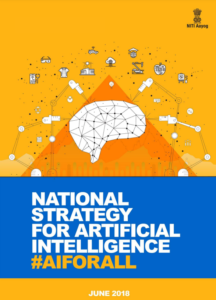Artificial Intelligence in finance is not just a trend but a revolution that promises increased efficiency, enhanced customer experiences, and more informed decision-making. The integration of AI in finance is reshaping the landscape, making processes faster, safer, and more customer-centric. This article delves into the diverse applications of artificial intelligence in finance and how it is transforming the sector.
Fraud Detection and Prevention
At the forefront of AI’s impact on finance is fraud detection and prevention. Traditional methods of detecting fraudulent activities often involve manual checks and predefined rules, which can be easily bypassed by sophisticated fraudsters. Artificial intelligence in finance, particularly machine learning algorithms, can analyze vast amounts of transaction data in real-time to identify patterns and anomalies that may indicate fraudulent behavior.
These AI systems continuously learn and adapt to new fraud techniques, making them more effective over time. For instance, AI can flag unusual transactions based on a user’s spending habits, location, and transaction history, alerting both the financial institution and the customer in case of suspected fraud.
Algorithmic Trading
Algorithmic trading, or algo-trading, leverages artificial intelligence in finance to make trading decisions at speeds and frequencies that are impossible for human traders. These algorithms analyze market data, identify trading opportunities, and execute trades at the optimal moment. AI-powered trading systems use complex mathematical models and deep learning to predict market movements and respond to real-time changes.
AI’s ability to process and analyze vast datasets from various sources – including financial news, social media, and economic indicators – allows it to generate insights and execute trades with precision. This has led to increased efficiency, reduced costs, and improved accuracy in trading activities.
Personalized Banking
Artificial intelligence in finance is also revolutionizing the way banks interact with their customers. Through the use of chatbots and virtual assistants, banks can provide personalized and efficient customer service around the clock. These AI-powered tools can handle a range of inquiries, from simple account balance checks to complex financial advice, significantly reducing wait times and improving customer satisfaction.
Moreover, AI analyzes customer data to offer personalized financial products and services. By understanding individual spending habits, income patterns, and financial goals, AI can recommend tailored investment opportunities, savings plans, and loan products, enhancing the overall customer experience.
Risk Management
In the volatile world of finance, risk management is crucial. Artificial intelligence in finance assists in identifying, analyzing, and mitigating risks more effectively than traditional methods. Machine learning models can process and analyze historical data to predict future risks and trends, enabling financial institutions to make more informed decisions.
For example, AI can assess credit risk by evaluating a borrower’s creditworthiness based on their financial history, social behavior, and other relevant factors. This leads to more accurate risk assessments and better decision-making in lending processes.
Regulatory Compliance
Financial institutions face stringent regulatory requirements, and the cost of non-compliance can be substantial. Artificial intelligence in finance helps streamline compliance processes by automating the monitoring and reporting of transactions to ensure they adhere to regulations. Natural Language Processing (NLP) technologies can scan and interpret legal documents, ensuring that financial practices are in line with current laws and standards.
Additionally, AI can monitor transactions for signs of money laundering and other illicit activities, making it a vital tool in maintaining regulatory compliance and avoiding hefty fines.
Wealth Management
AI is transforming wealth management by providing sophisticated tools for financial advisors and investors. Robo-advisors, powered by artificial intelligence in finance, offer automated, algorithm-driven financial planning services with minimal human intervention. These platforms assess an individual’s financial situation and goals to provide investment advice, portfolio management, and financial planning.
AI also aids human financial advisors by providing them with advanced analytics and insights, helping them make better investment decisions for their clients. This hybrid approach combines the best of both worlds, ensuring a more personalized and effective wealth management service.
Conclusion
The integration of artificial intelligence in finance is creating a paradigm shift, offering unparalleled advantages in terms of efficiency, accuracy, and customer experience. As AI technology continues to evolve, its applications in finance will only grow, opening up new possibilities and transforming the way financial institutions operate. The future of finance is undoubtedly intelligent, and those who embrace AI will be at the forefront of this exciting revolution.
Artificial intelligence in finance is not just enhancing existing processes but also enabling entirely new ways of conducting business, ensuring that the financial sector is more secure, efficient, and responsive to customer needs. Embracing this technology is no longer optional but essential for staying competitive in the rapidly evolving financial landscape.


[…] The Transformative Power of Artificial Intelligence in Finance […]